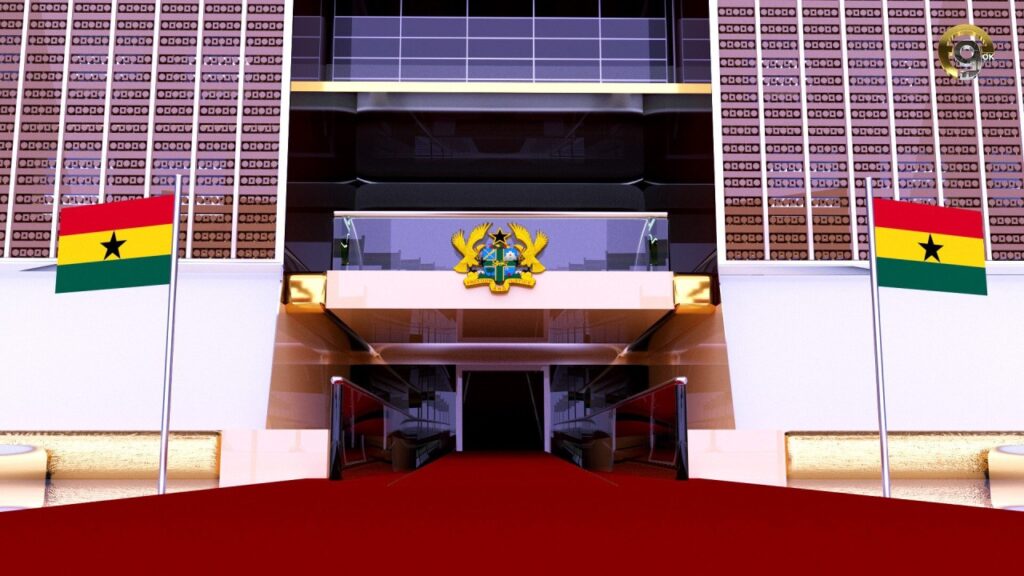Our Political Desk
The air in Accra is thick with expectation. President John Dramani Mahama is back in Jubilee House, and the public is demanding blood. Not literal blood, of course, but the political heads of those who served under the former Akufo-Addo regime.
The narrative is clear: an unprecedented era of corruption needs an unprecedented show of accountability.
The people want justice, and they want it now.
But even before the new government can find its feet, the familiar scent of political doublespeak is in the air.
The General Secretary of the National Democratic Congress (NDC), Fiifi Fiavi Kwetey, has let the cat out of the bag. He’s revealed that some bigwigs within his own party are already lobbying to save certain former government officials from prosecution.
His admission has thrown a spanner in the works, raising the question: Will this new war on corruption be a genuine one, or just another chapter in Ghana’s long history of dashed hopes?
Mahama’s Secret Weapon: The “ORAL” Truth
In response to the growing public pressure, President Mahama has promised that the scandals of the last regime won’t be swept under the rug. He’s putting his faith in the Operation Recover All Loots (ORAL) taskforce, a unit created to hunt down and retrieve stolen state funds. ORAL, he says, is already digging into the most notorious cases—the PDS debacle, the SML contract saga, and the chaos at the Bank of Ghana.
Mahama’s message is clear: the government is working, even if quietly. But the public isn’t just looking for activity; they’re looking for results. Will ORAL deliver the kind of high-profile convictions that restore faith in the system, or will it be a token effort to quiet the angry mob?
Julius Debrah’s Sobriety
Chief of Staff Julius Debrah has sought to ground the anti-corruption effort in strategy rather than speeches. At the inauguration of the drafting team for NACAP II (National Anti-Corruption Action Plan, 2025–2035), he admitted bluntly that the first NACAP failed, as evidenced by Ghana’s drop on Transparency International’s Corruption Perceptions Index (from 48% in 2014 to 42% in 2024).
Debrah described corruption as “first and foremost a moral issue before a legal one” and warned that it has become “endemic, threatening institutions and democracy itself.”
He called for ethics, technology, institutional independence, and “shock therapy” reforms to disrupt the culture of impunity. His words show that the government is aware of the scale of the problem—but awareness must now translate into results.
War of Words: NDC’s Internal Battle
The internal fight within the NDC is a fascinating one, revealing the tug-of-war between public rhetoric and private reality.
Asiedu Nketiah’s Fire
NDC Chairman Johnson Asiedu Nketiah, in his trademark fiery style, has gone all in. “No one will get away with corruption under an NDC government,” he’s thundered, even vowing to “find” former Finance Minister Ken Ofori-Atta “wherever he is.”
He’s also sounded the alarm on the corrosive effect of money in politics, pointing out how the pressure of campaign financing leads to corruption in office. His words resonate with the public, but they also set a high, almost impossible, bar for Mahama to clear.
Kwetey’s Caution
On the other side of the coin, Fiifi Kwetey’s confession of internal lobbying paints a different picture. It’s a sobering reminder that not everyone in the party is on the same page.
The tension between Nketiah’s promises and Kwetey’s brutal honesty shows the deep-seated resistance Mahama faces from within his own ranks.
The Road Ahead: A Minefield of Obstacles
Even with the best of intentions, Mahama’s anti-corruption crusade faces a daunting list of challenges:
* The Old Boys’ Club: Ghana’s political elite has a long-standing tradition of protecting one another, regardless of party lines. Kwetey’s comments confirm this fear.
* The Missing Plan: While ORAL is a start, a clear, comprehensive strategy for tackling multiple complex cases has yet to be revealed.
* Fear of Payback: Every government fears setting a precedent that could one day be used against them.
* The Paper Trail Problem: Crucial documents often disappear during handovers, while civil servants loyal to the previous regime can slow down investigations.
* A Broken System: The judiciary is mistrusted and under-resourced, and with the country under IMF supervision, funds for these lengthy, high-profile prosecutions are scarce.
Public Trust Hangs in the Balance
The competing narratives from Mahama, Nketiah, Kwetey, and Debrah capture the Ghanaian dilemma perfectly: fiery promises, veiled threats of sabotage, and sober admissions of past failures. But the average Ghanaian isn’t listening to the competing voices; they’re waiting for action.
If Mahama’s prosecutions fail to deliver or seem biased, he will lose credibility fast. However, if ORAL manages to secure convictions in high-profile cases like PDS and SML, it could change Ghana’s political landscape forever. It would prove that accountability is not just a slogan but a genuine possibility.
In the end, Mahama has a tool in ORAL, a fire in Asiedu Nketiah, a strategy from Julius Debrah, and a warning from Fiifi Kwetey.
The outcome of this struggle will determine whether his second term becomes a legacy of true change or just another chapter of unfulfilled promises. The ghosts of Jubilee House are watching.


